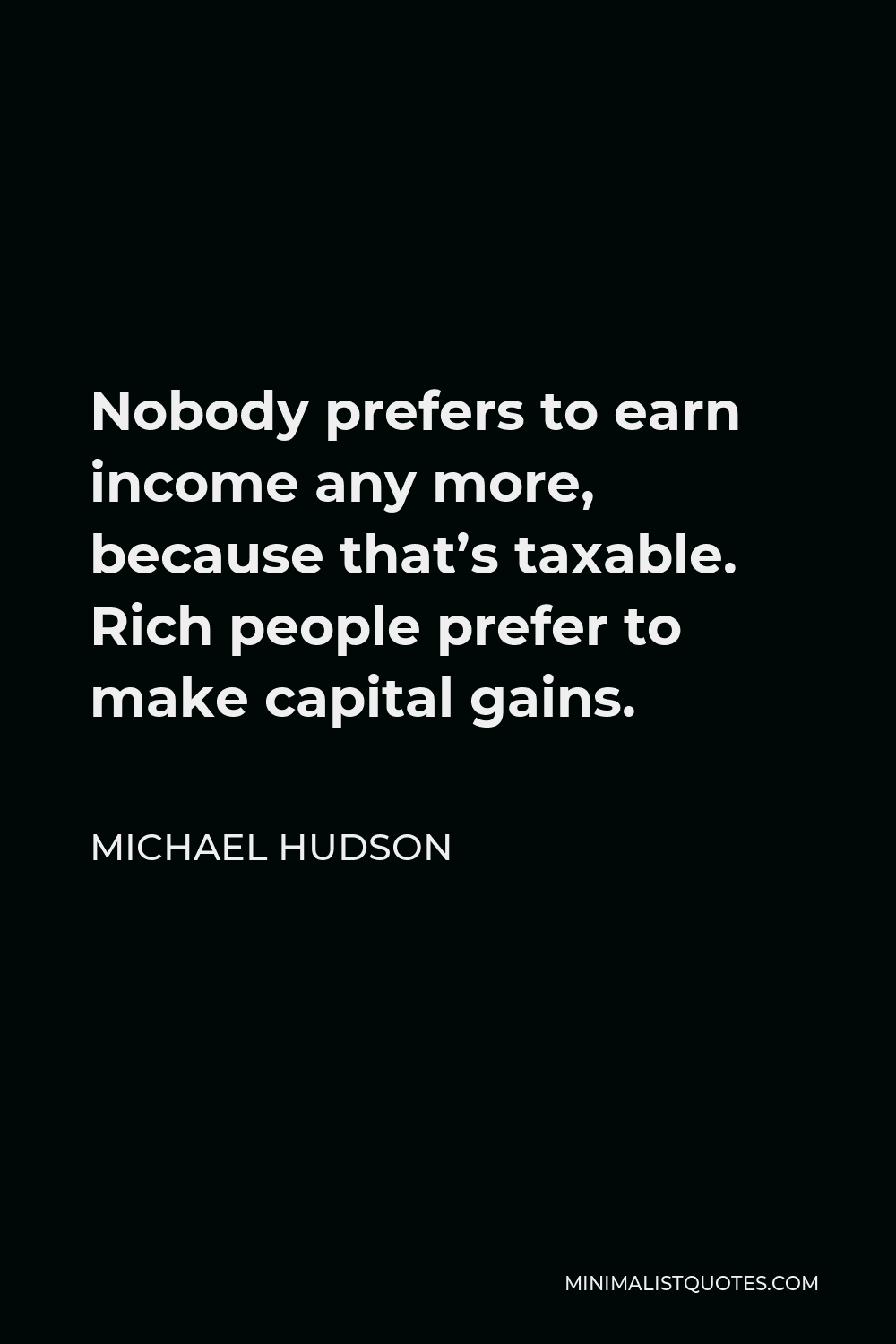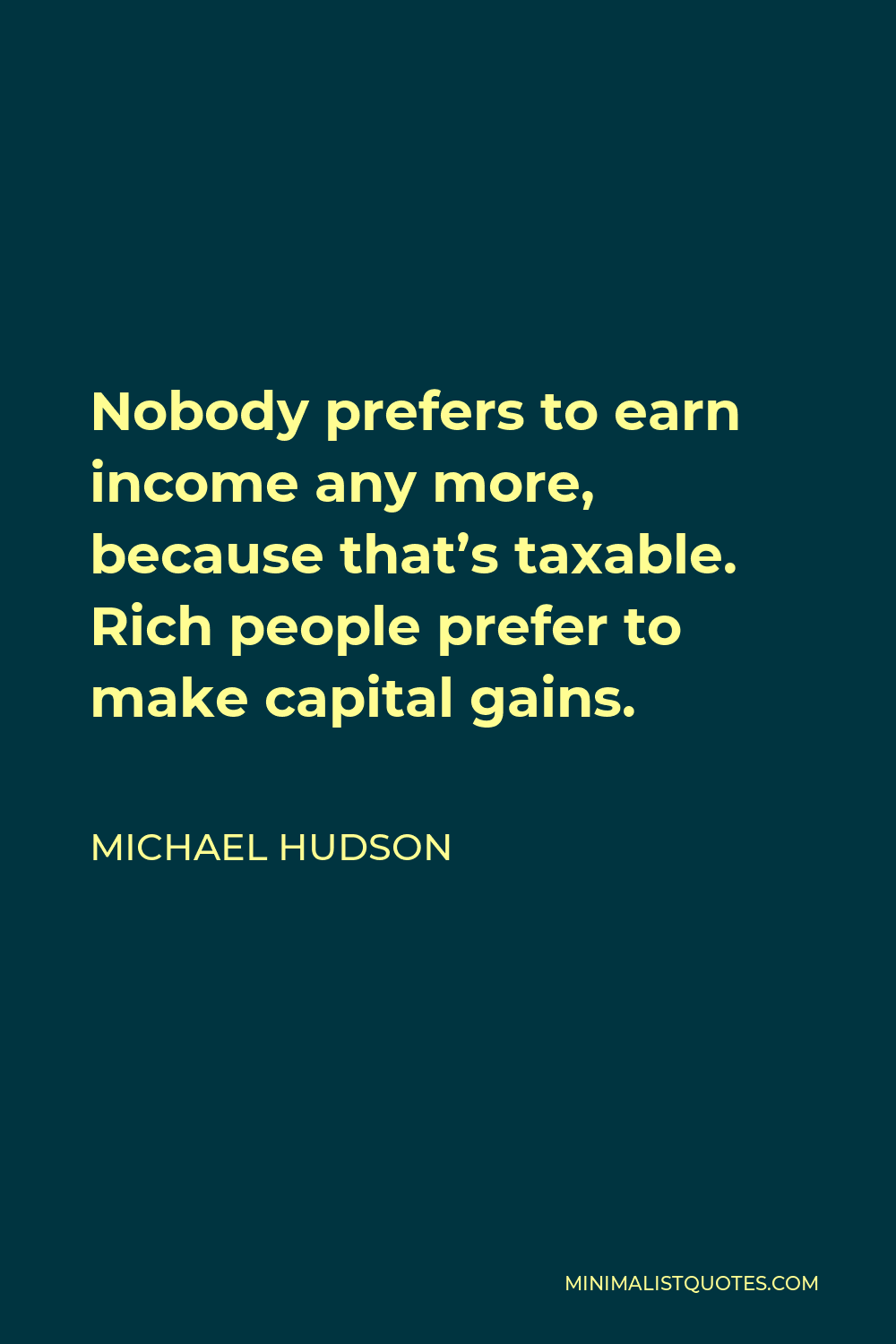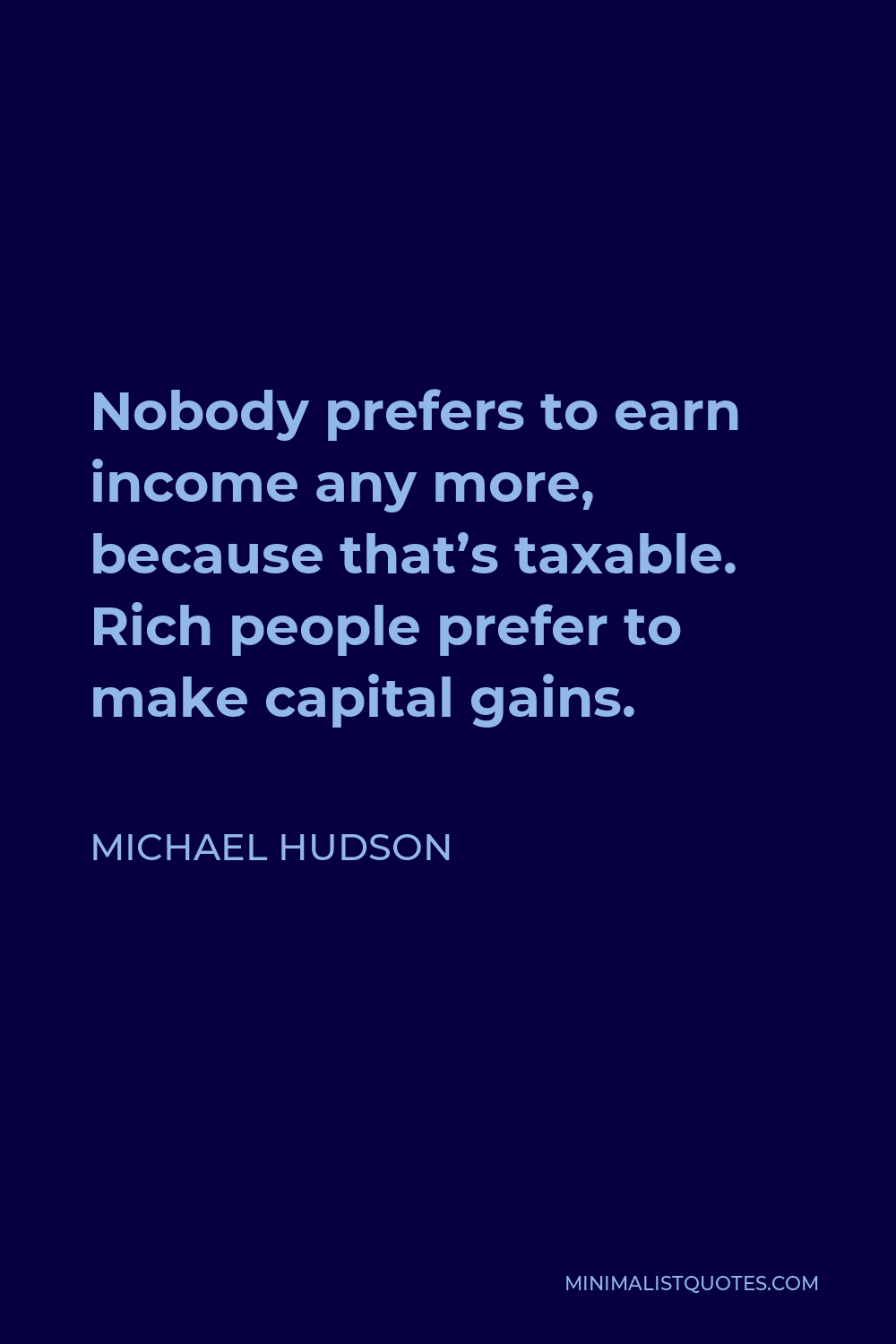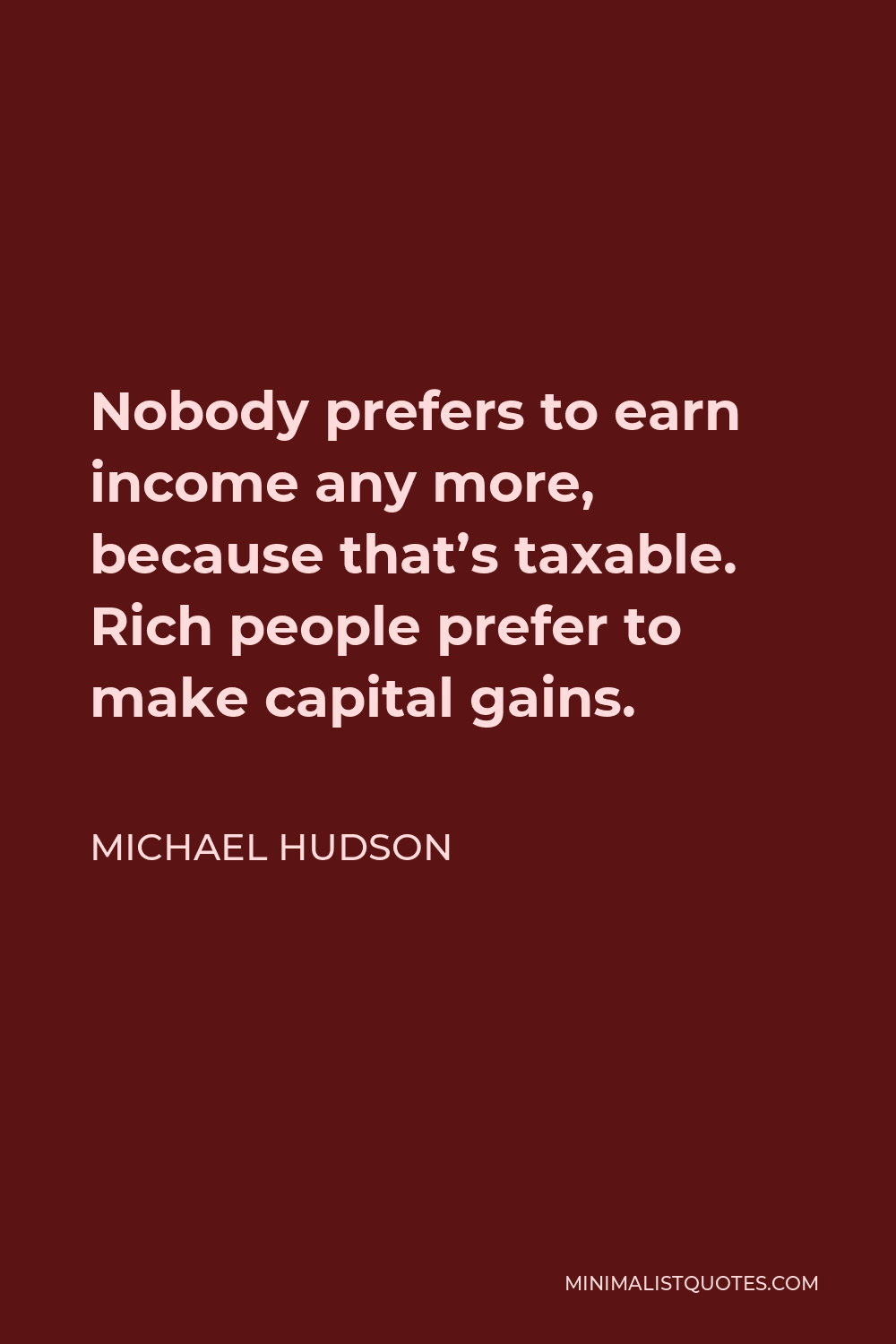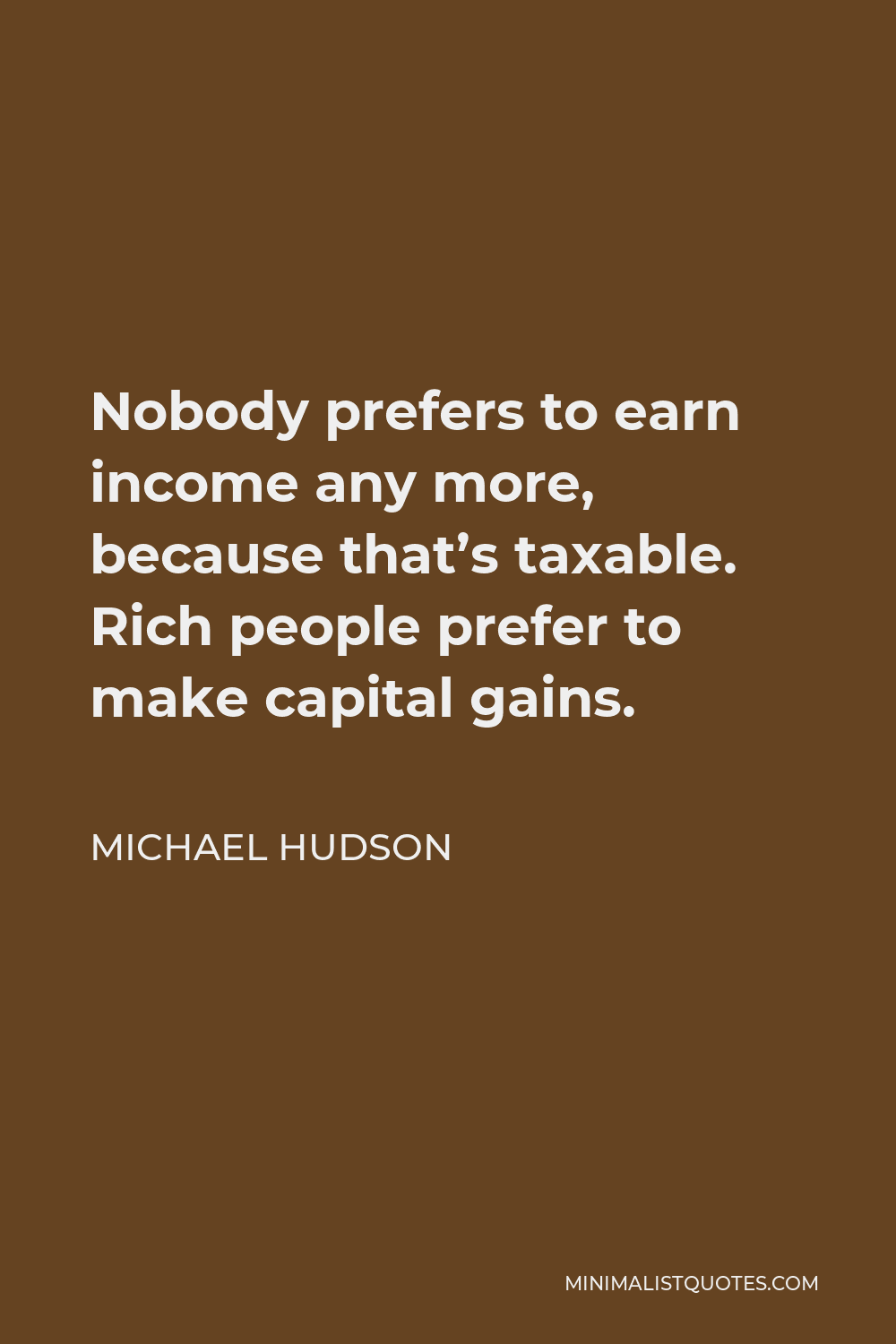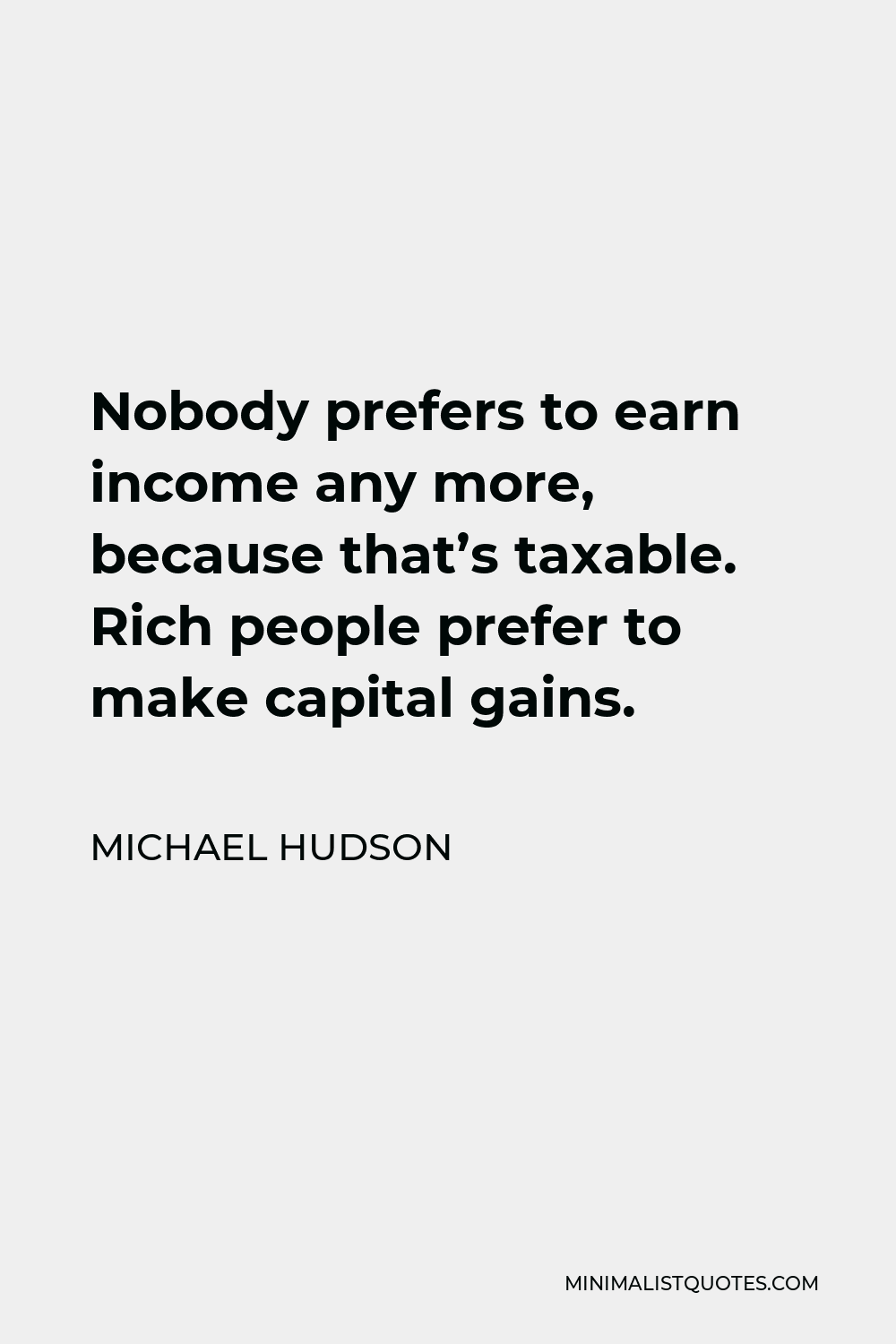The myth is that if housing prices go up, Americans will be richer. What banks – and behind them, the Federal Reserve – really want is for new buyers to be able to borrow enough money to buy the houses from mortgage defaulters, and thus save the banks from suffering from more mortgage defaults.
MICHAEL HUDSONNobody prefers to earn income any more, because that’s taxable. Rich people prefer to make capital gains.
More Michael Hudson Quotes
-





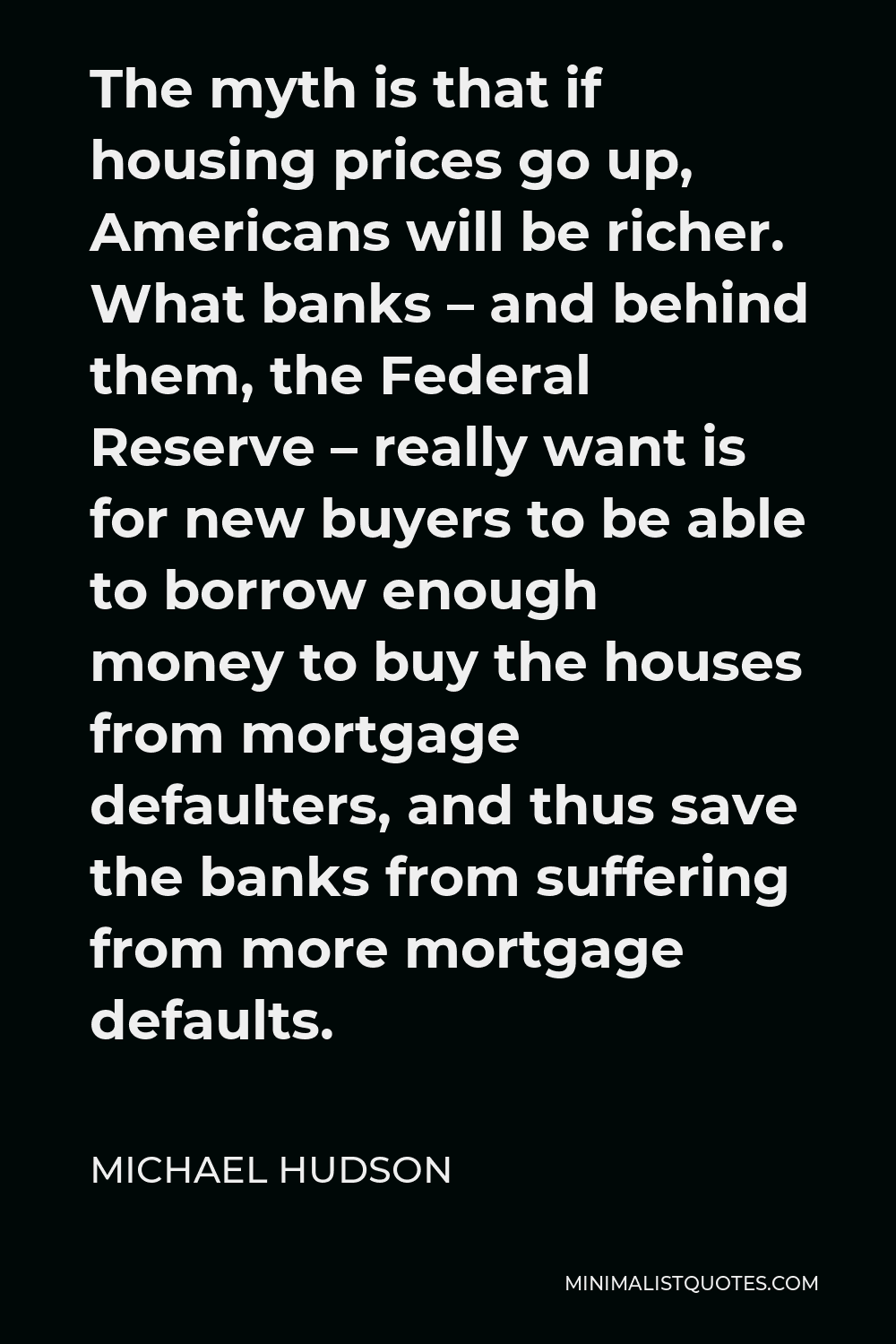
-





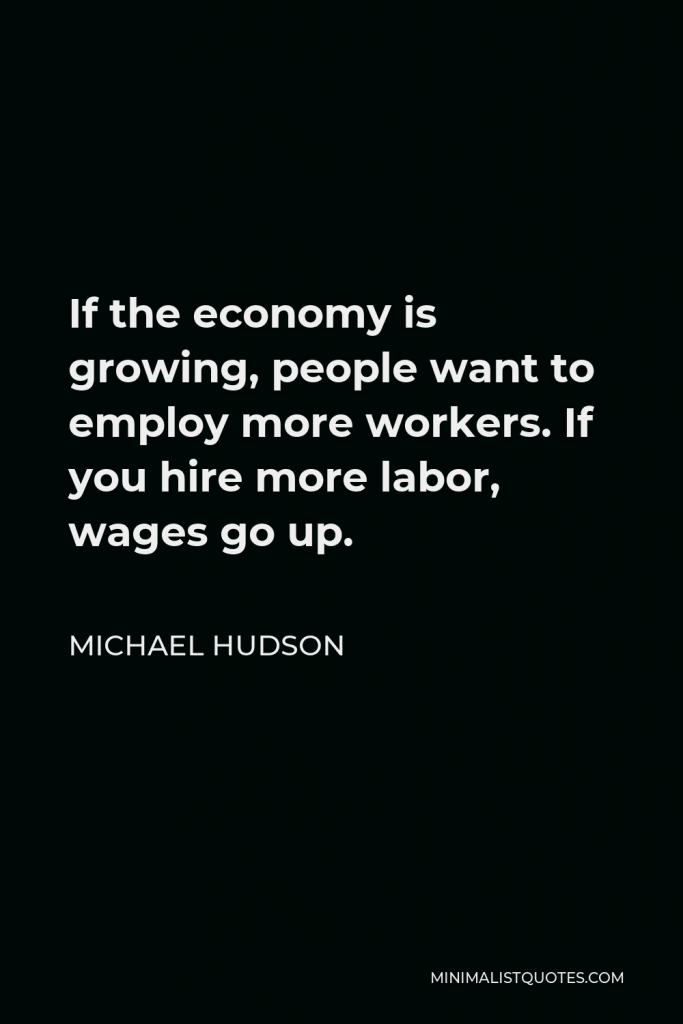

If the economy is growing, people want to employ more workers. If you hire more labor, wages go up.
MICHAEL HUDSON -






Normally, if someone goes bankrupt, you wipe out the debt and get a fresh start. But that’s not permitted with student loans. So the effect is to impoverish many graduates with very high debts.
MICHAEL HUDSON -





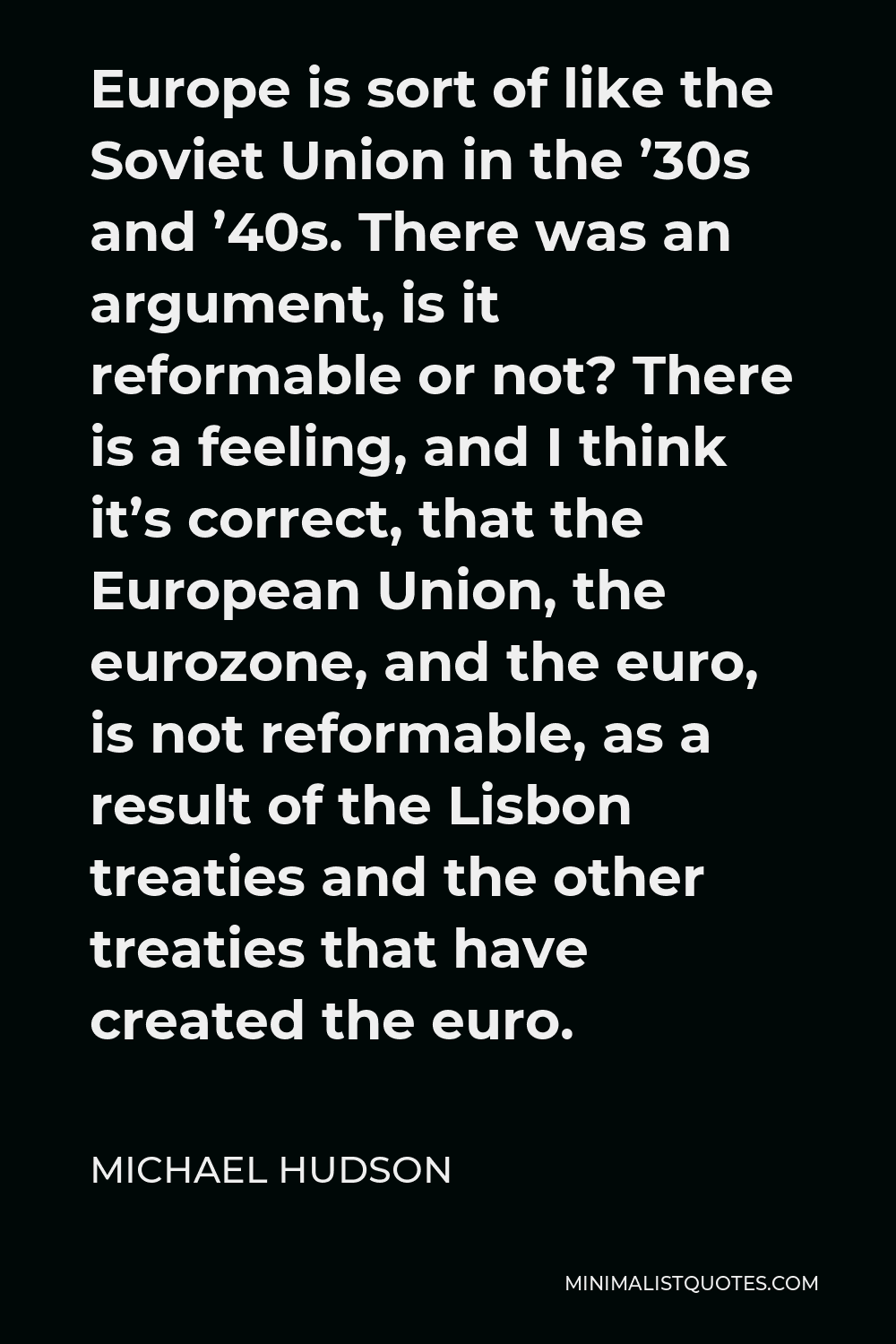
Europe is sort of like the Soviet Union in the ’30s and ’40s. There was an argument, is it reformable or not? There is a feeling, and I think it’s correct, that the European Union, the eurozone, and the euro, is not reformable, as a result of the Lisbon treaties and the other treaties that have created the euro.
MICHAEL HUDSON -





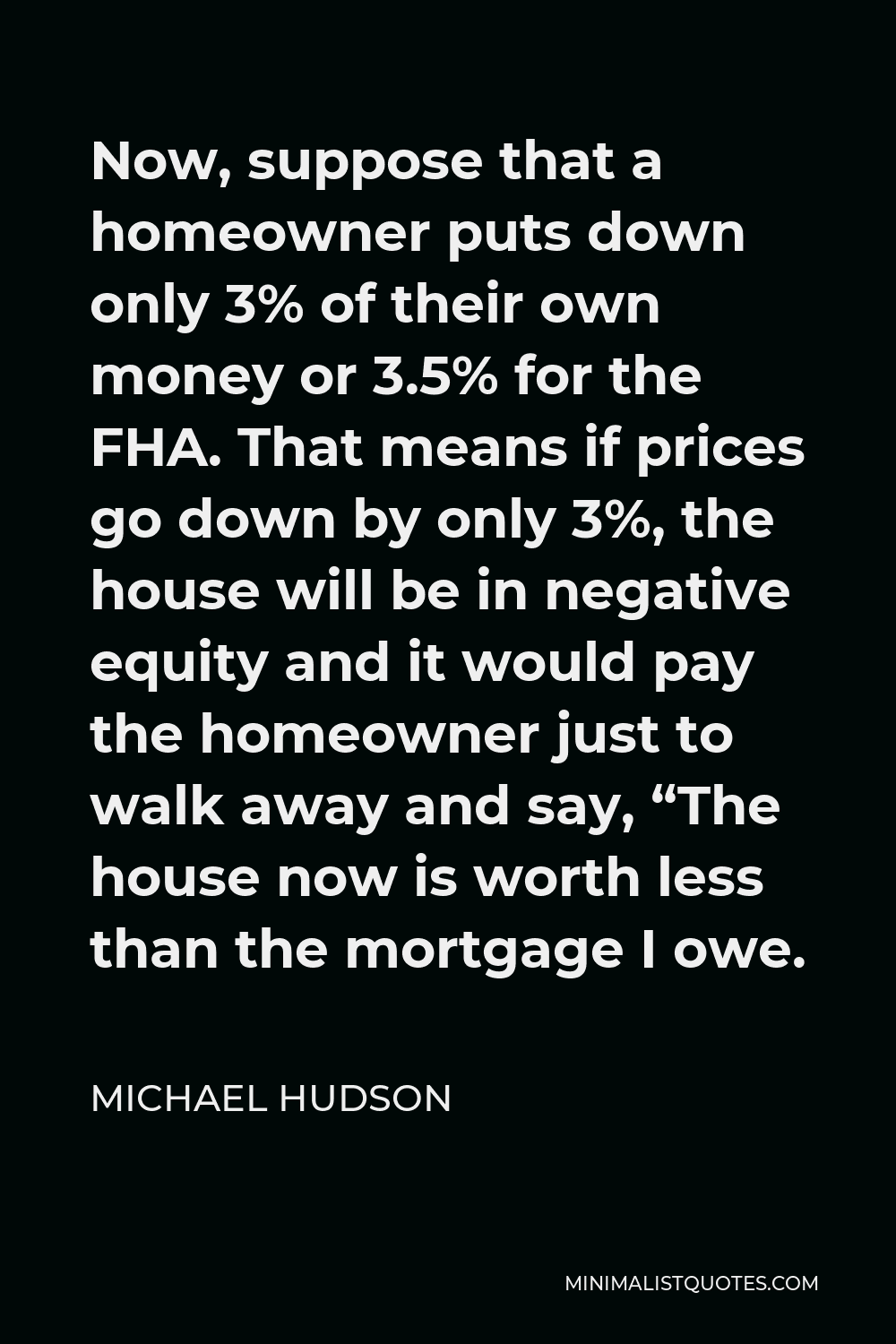
Now, suppose that a homeowner puts down only 3% of their own money or 3.5% for the FHA. That means if prices go down by only 3%, the house will be in negative equity and it would pay the homeowner just to walk away and say, “The house now is worth less than the mortgage I owe.
MICHAEL HUDSON -





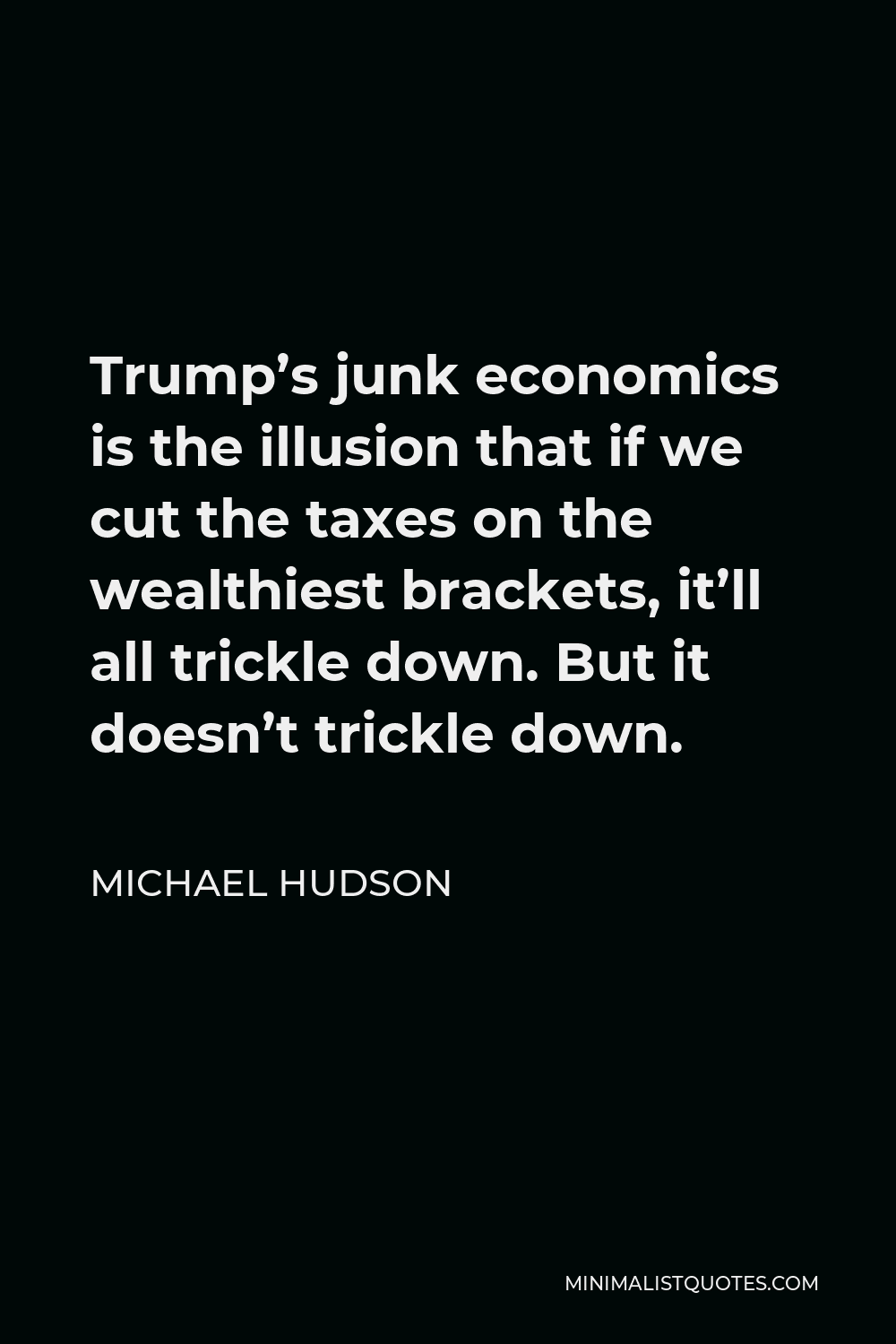
Trump’s junk economics is the illusion that if we cut the taxes on the wealthiest brackets, it’ll all trickle down. But it doesn’t trickle down.
MICHAEL HUDSON -





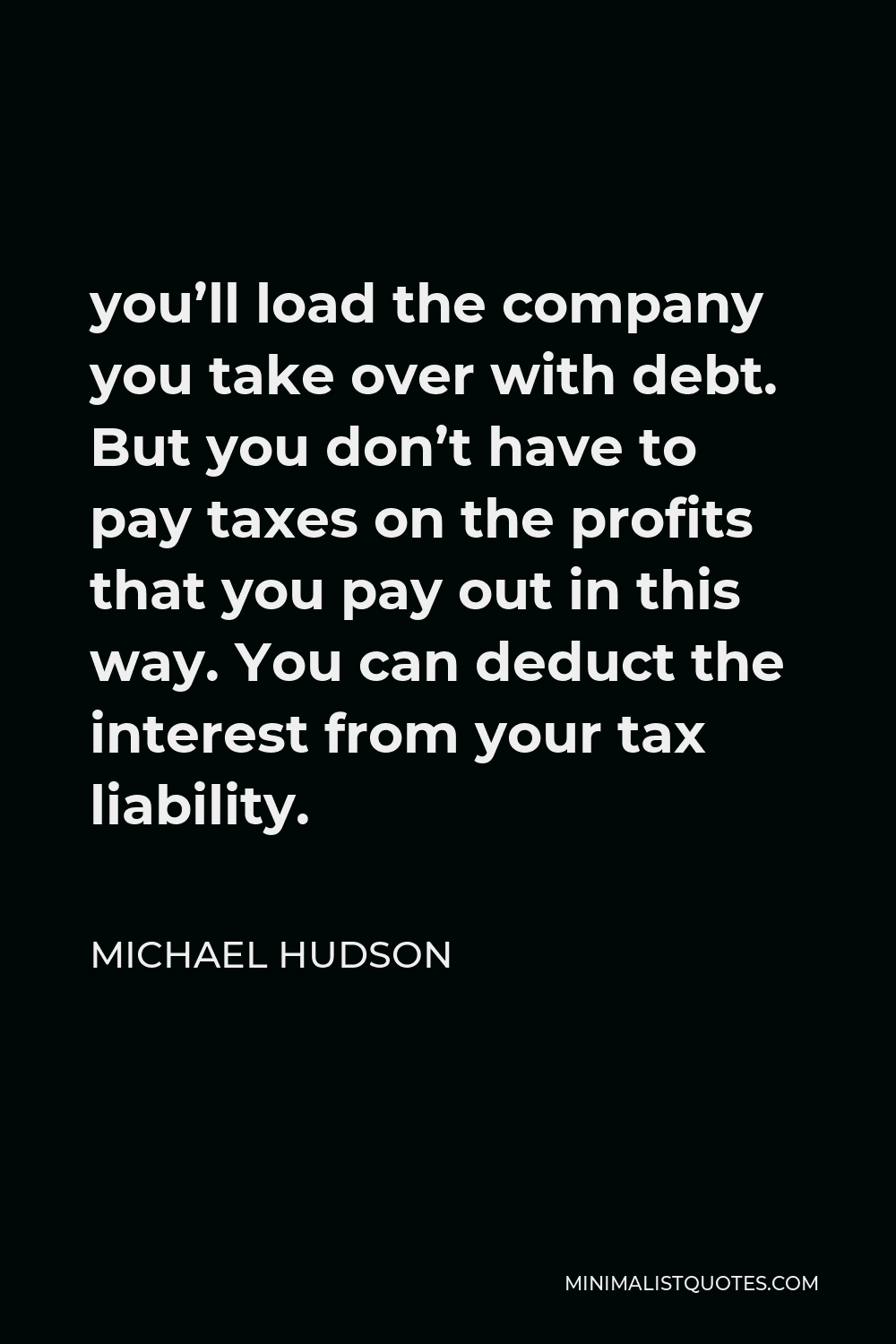
you’ll load the company you take over with debt. But you don’t have to pay taxes on the profits that you pay out in this way. You can deduct the interest from your tax liability.
MICHAEL HUDSON -





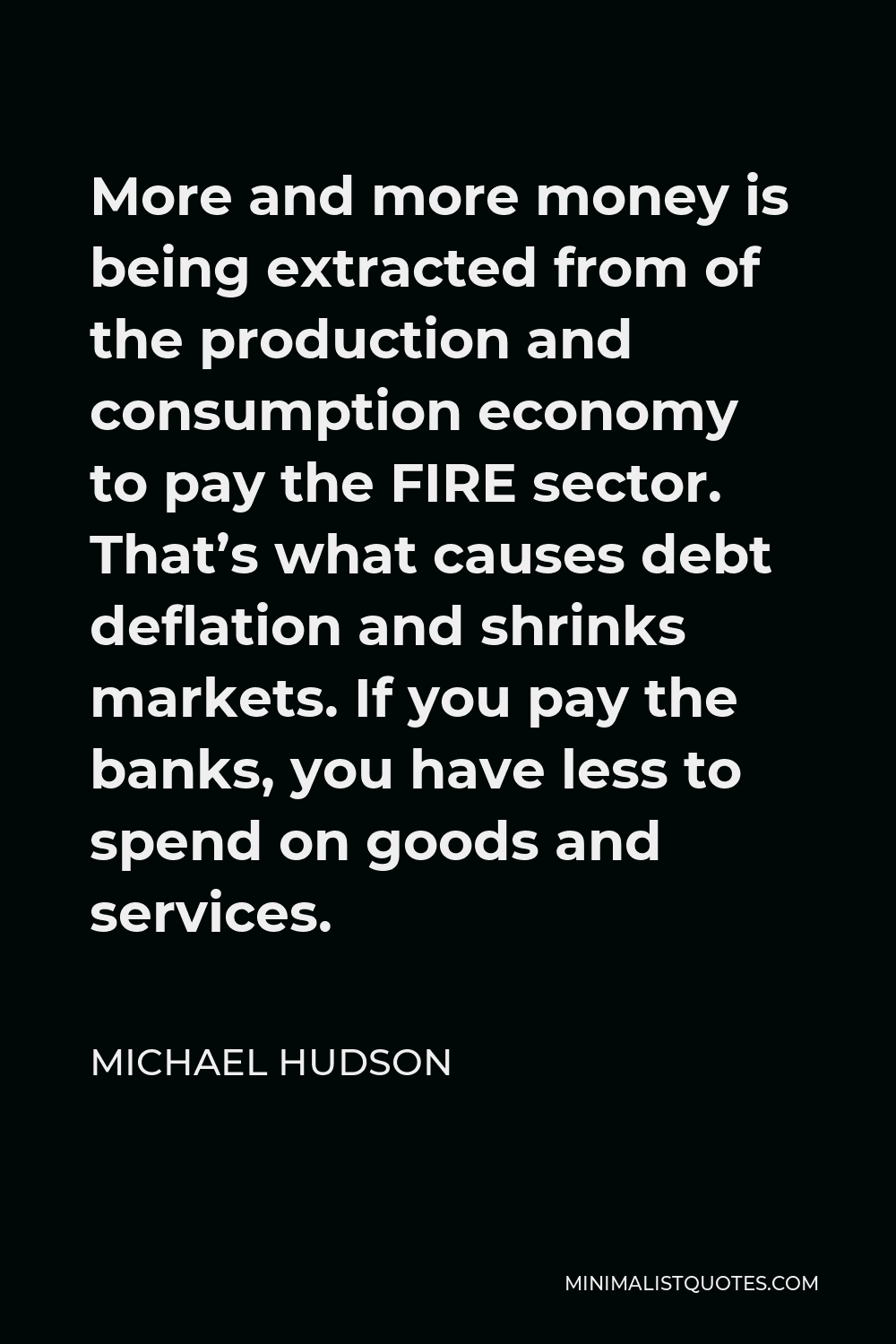
More and more money is being extracted from of the production and consumption economy to pay the FIRE sector. That’s what causes debt deflation and shrinks markets. If you pay the banks, you have less to spend on goods and services.
MICHAEL HUDSON -





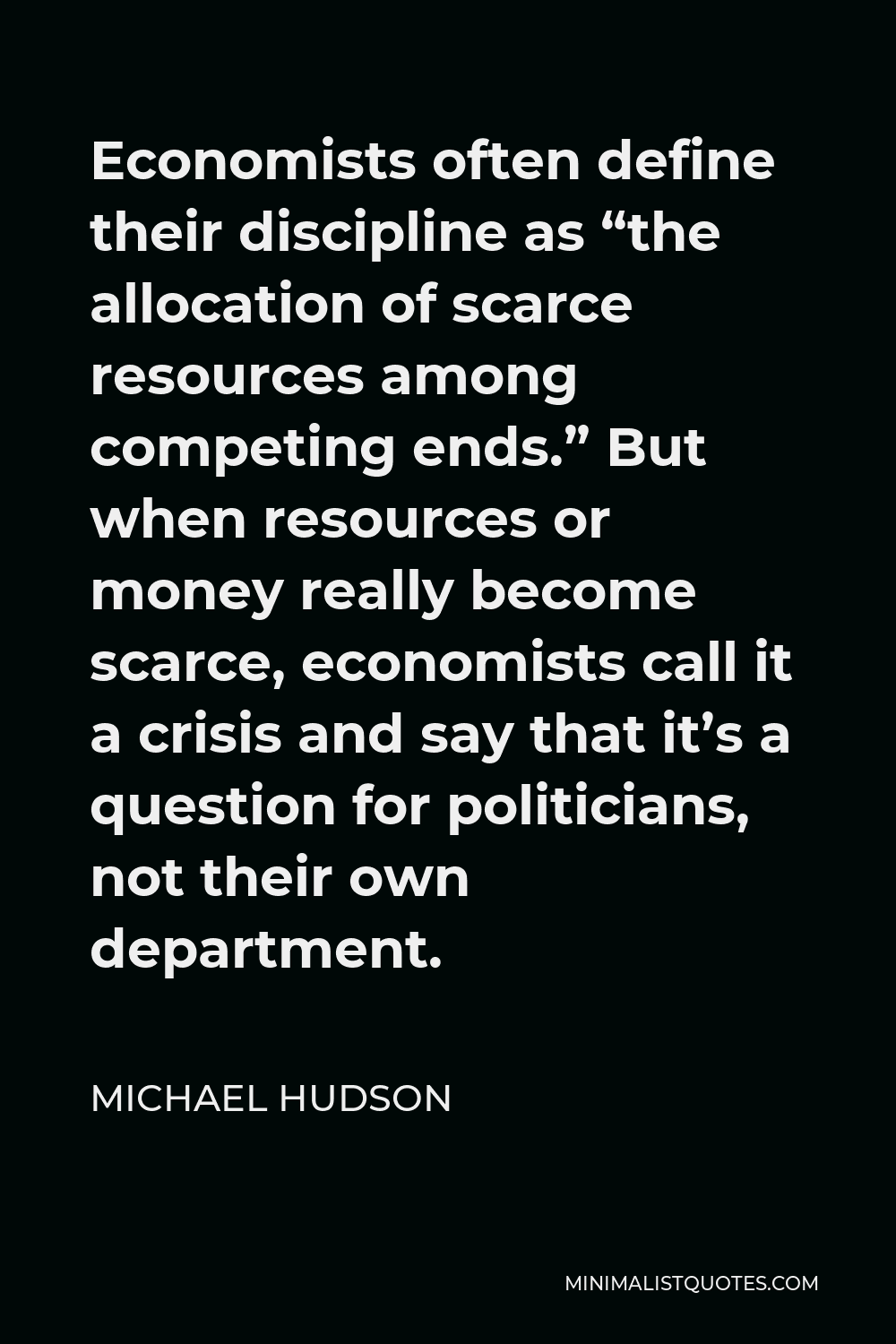
Economists often define their discipline as “the allocation of scarce resources among competing ends.” But when resources or money really become scarce, economists call it a crisis and say that it’s a question for politicians, not their own department.
MICHAEL HUDSON -






When we say “people worry” about inflation, it’s mainly bondholders that worry. The labor force benefitted from the inflation of the ’50s, ’60s and ’70s.
MICHAEL HUDSON -





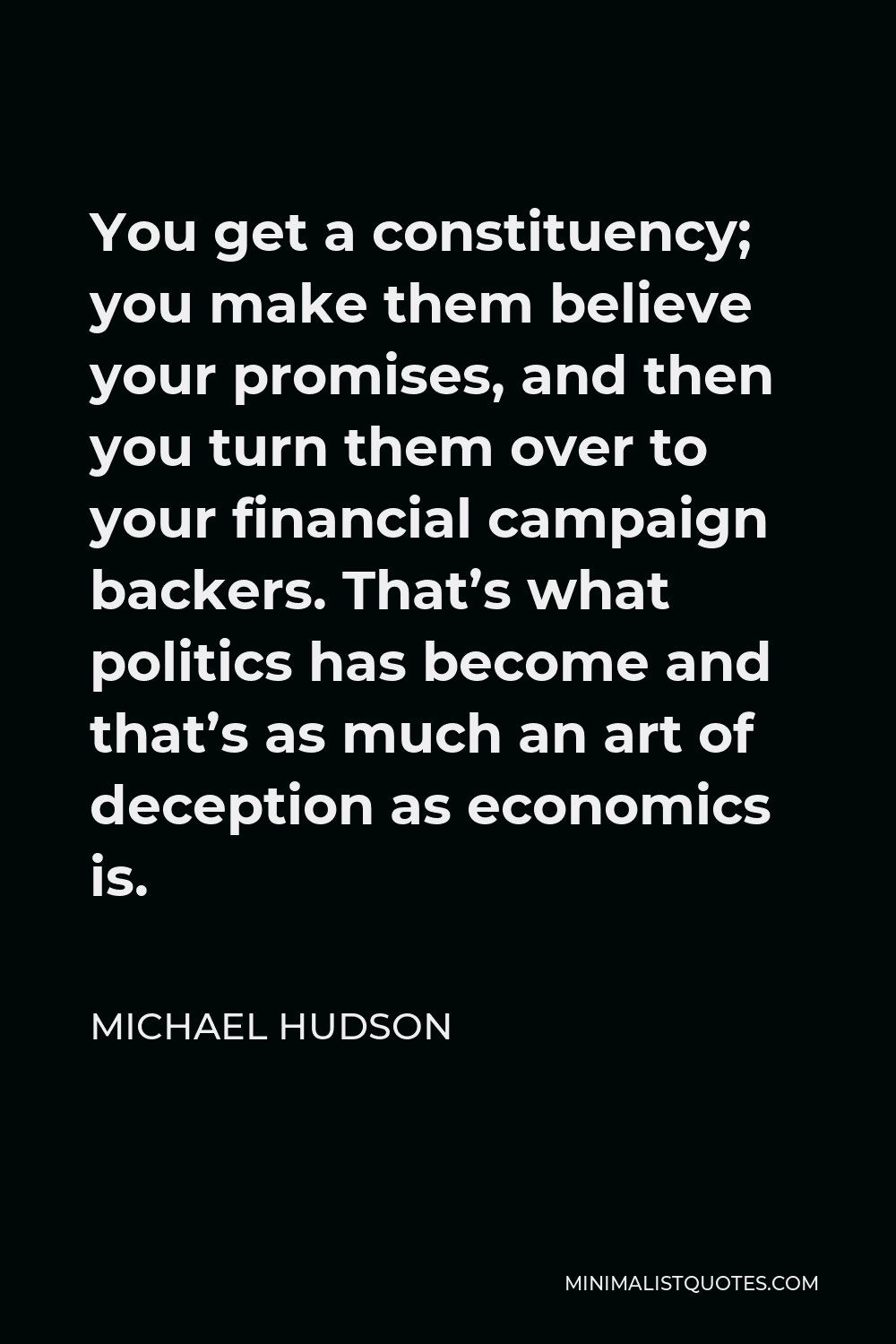
You get a constituency; you make them believe your promises, and then you turn them over to your financial campaign backers. That’s what politics has become and that’s as much an art of deception as economics is.
MICHAEL HUDSON -






Small banks that lend to consumers are fine.
MICHAEL HUDSON -





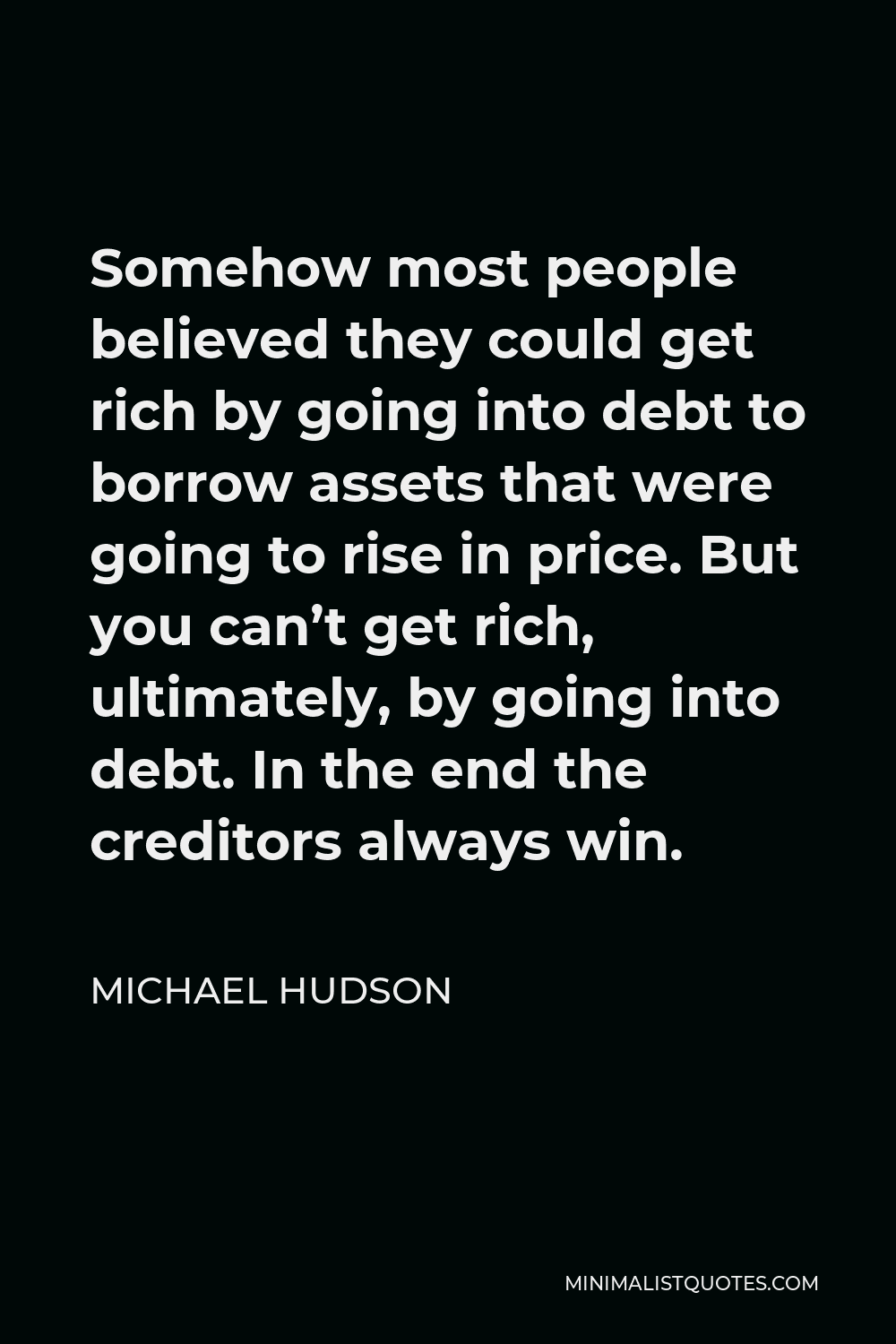
Somehow most people believed they could get rich by going into debt to borrow assets that were going to rise in price. But you can’t get rich, ultimately, by going into debt. In the end the creditors always win.
MICHAEL HUDSON -





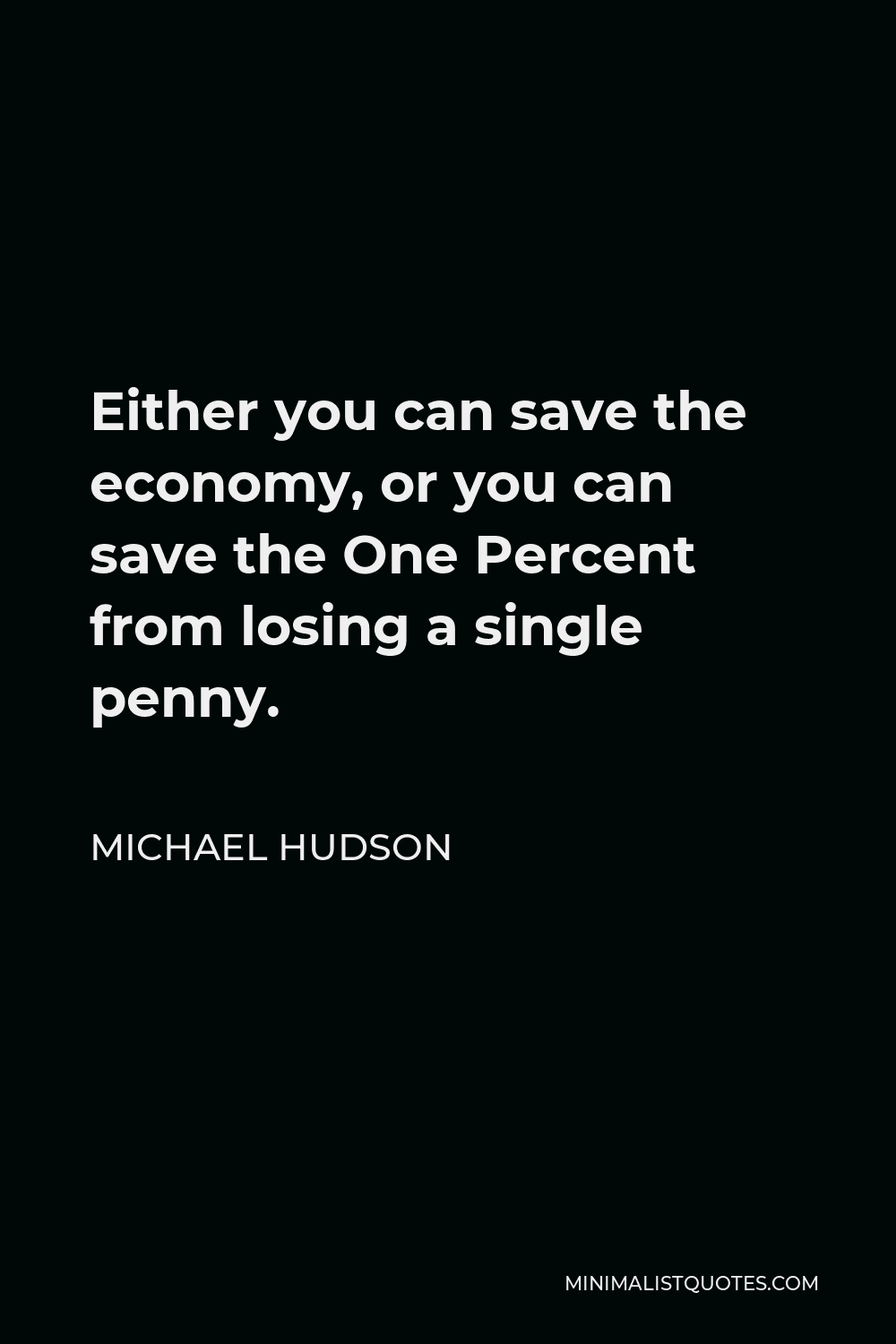
Either you can save the economy, or you can save the One Percent from losing a single penny.
MICHAEL HUDSON -





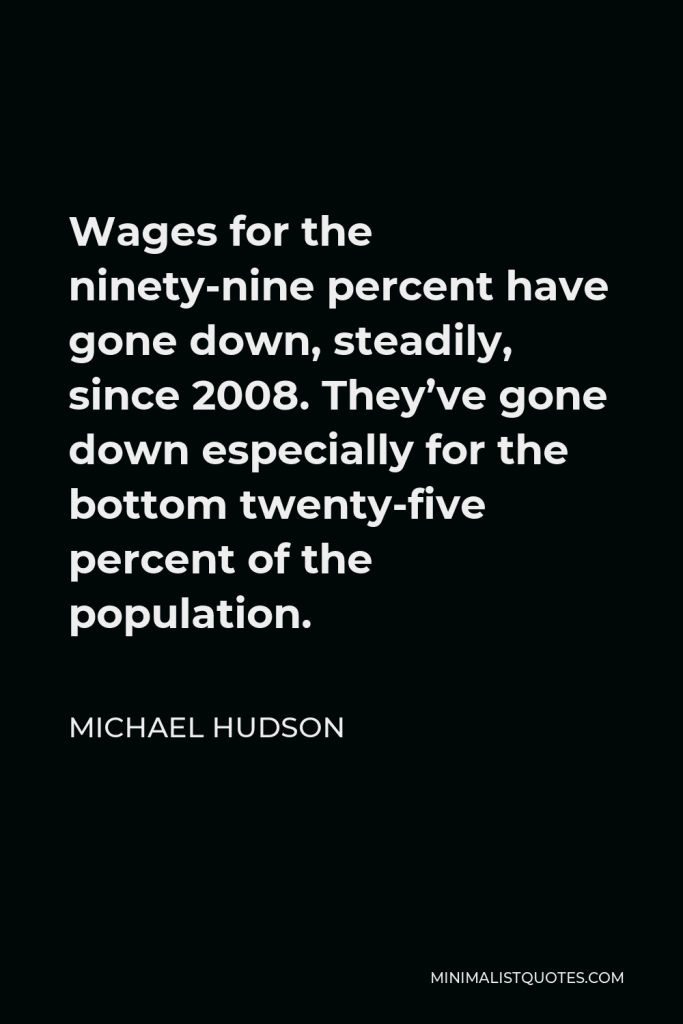

Wages for the ninety-nine percent have gone down, steadily, since 2008. They’ve gone down especially for the bottom twenty-five percent of the population.
MICHAEL HUDSON -






Every government, from the Obama administration right through to Angela Merkel, the Eurozone and the IMF, promise to save the banks, not the economy.
MICHAEL HUDSON
